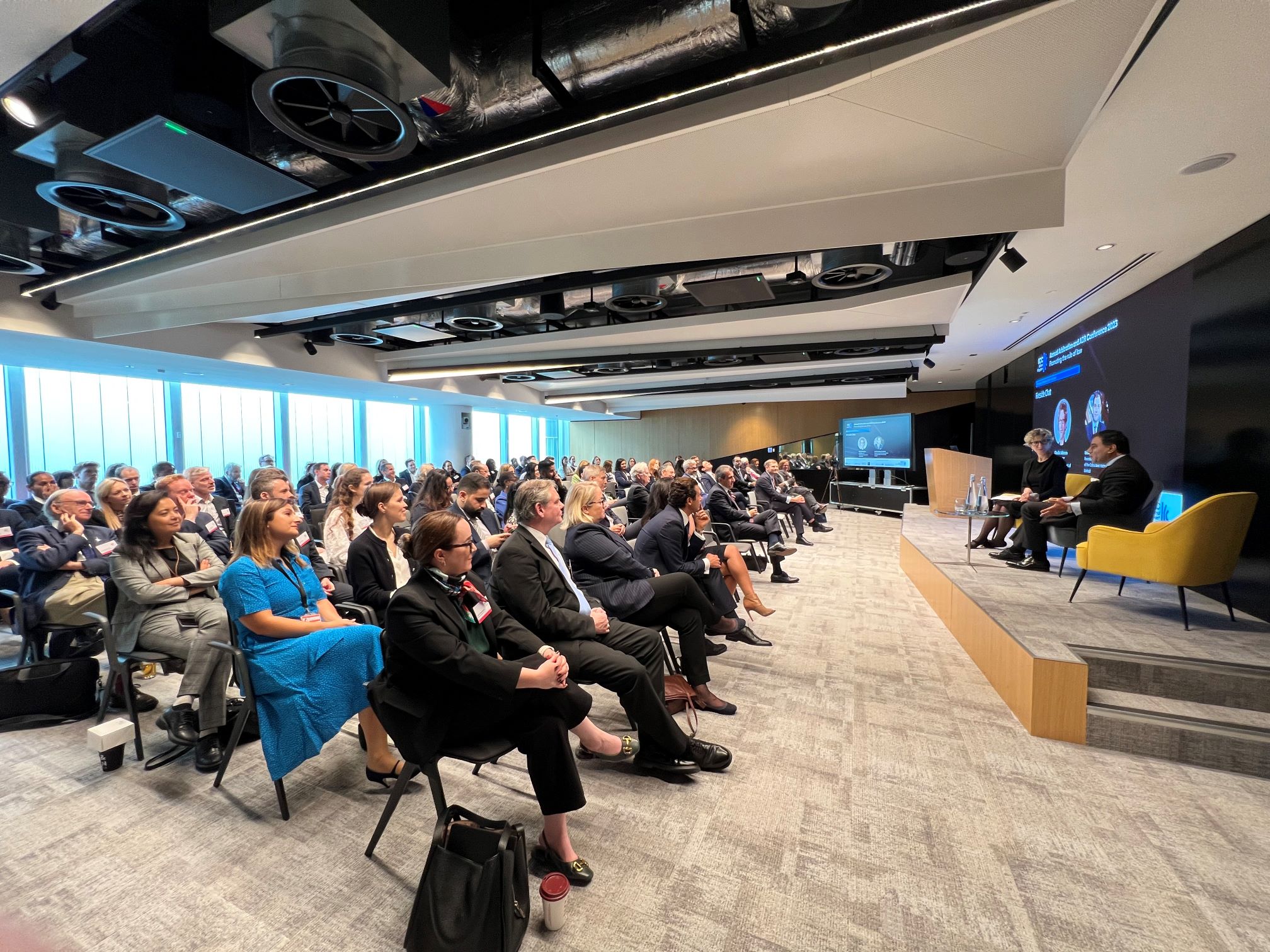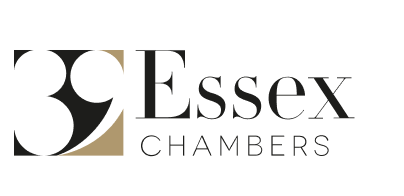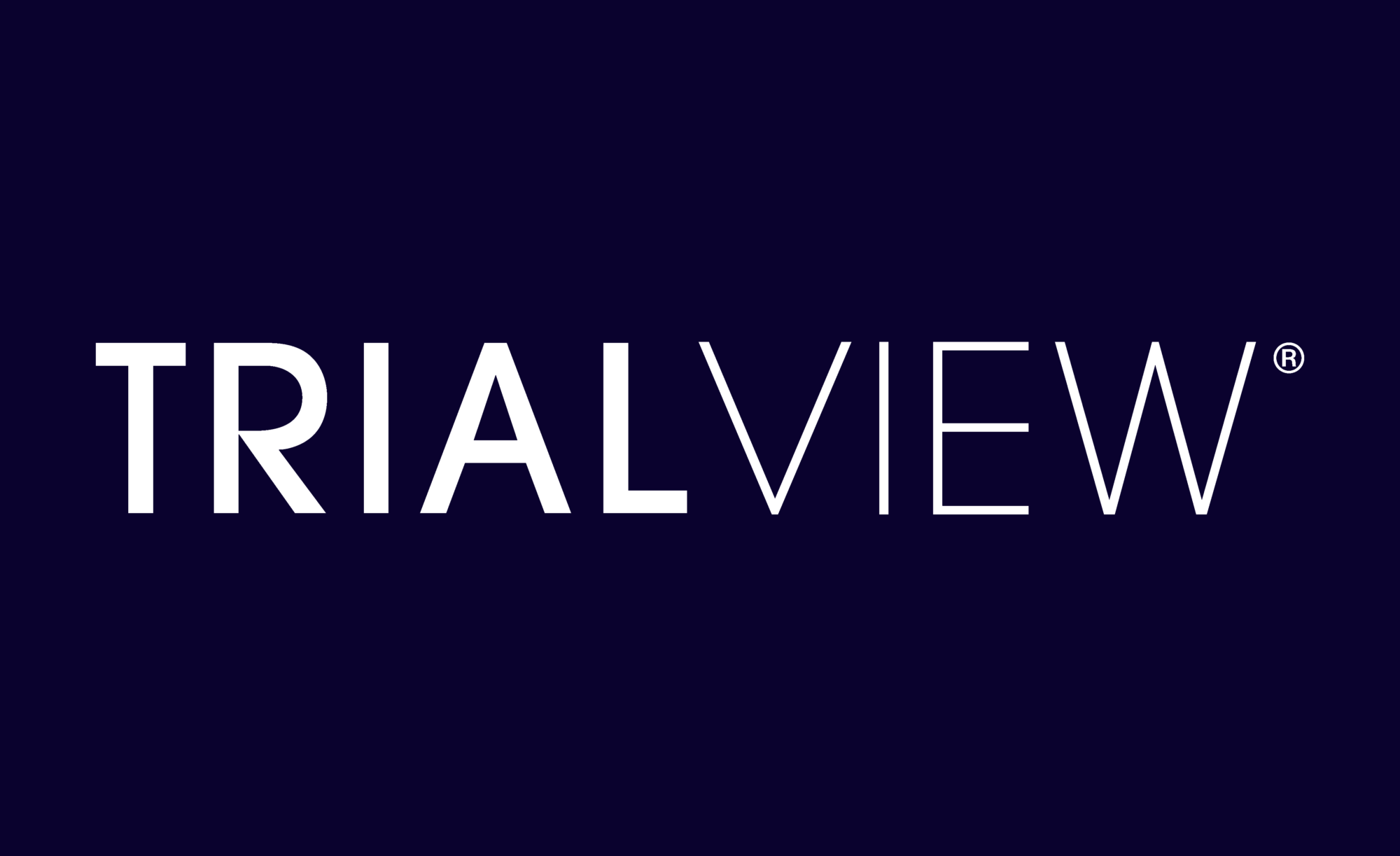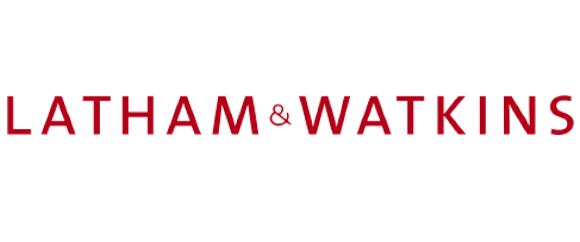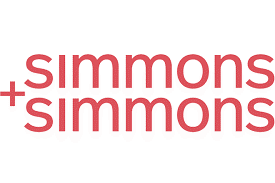ICC United Kingdom Annual Arbitration & ADR Conference: the boundaries of influence in arbitration, 23 & 24 October 2024
Day 1 – Virtual (3 webinars taking place at 10:00, 12:00 & 13:30)
Day 2 – In-person only
150+ participants
2 days
40+ speakers
Sessions include:
- Young Arbitration & ADR Session on First Appointments
- Culture Wars: Insolvency meets International Arbitration
- Expedited procedures
- Keynote address from The Hon Mr Justice (Sir Robin) Knowles CBE: The role of arbitral tribunal
- Is the international arbitration system too prone to abuse?
- Unwritten evidential rules in international arbitration
- Fireside chat: A Client Perspective from ArcelorMittal
- AI in arbitration – A SWOT analysis
- The ongoing impact of sanctions on arbitration
- Facilitating settlement in international arbitration
Young Arbitration & ADR Session on First Appointments
This webinar will focus on the experience of first-time or new arbitrators after they secured their first appointment. The panellists will share war stories and lessons from their initial appointments, covering themes such as drafting the first procedural order, handling recalcitrant parties, seeking advice from your network, and handling complex proceedings.
Nora Fredstie, ICC YAAF Representative for Europe and Central Asia; Partner, DAC Beachcroft
Trisha Mitra-Veber, ICC YAAF Representative for Europe and Central Asia; Senior Associate, Reed Smith LLP
Rahul Donde, Founder, Rahul Donde Dispute Resolution, Geneva
Krystal Lee, Associate, LALIVE LLP, London
Anina Liebkind, Partner, Norburg & Scherp, Stockholm
Krystle Baptista Serna, Arbitrator, KB Arbitration, Madrid
Tomas Vail, Advocate and Arbitrator, Vail Dispute Resolution, London
Culture Wars: Insolvency meets International Arbitration
‘Arbitration’ and ‘Insolvency’ are often described as two worlds with different perspectives on fundamental aspects of the legal system. Whereas arbitration is said to afford primacy to party intent, insolvency is inherently concerned with rights of third parties such as creditors. Complex legal and policy questions arise when the two disciplines are forced to interact. In this session, our speakers will explore some of these issues in the context of ongoing efforts to harmonise cross border insolvency regimes.
Patrick Taylor, Partner, Debevoise & Plimpton
James Barratt, Partner and Co-Head of International Disputes – Europe, Vinson & Elkins
Angeline Welsh KC, Barrister, Essex Court Chambers
Kushal Gandhi, Partner, CMS Cameron McKenna Nabarro Olswang LLP
Emily Saunderson, Quadrant Chambers
Expedited procedures
Are Expedited Procedures in International Arbitration Fit for Purpose? Promoted as a panacea to save time and money—both crucial to international businesses—do they truly deliver on these promises, or do they risk leading to unfair outcomes for the parties involved? The panel will explore the pros and cons of such procedures
Costas Frangeskides, Partner, Wordley Partnership
James Clanchy, Commercial Arbitrator
Kim Franklin KC, Crown Office Chambers
Rana Obeid, Associate General Counsel, Jacobs
Registration
Welcome remarks
Guy Pendell, Chair, ICC United Kingdom Arbitration & ADR Committee
Stuart Dutson and Philippe Cavalieros (Vice-Chair of the ICC Commission on Arbitration & ADR, Paris), Co-Chairs, International Arbitration Group, Simmons & Simmons
Keynote address: The role of arbitral tribunal
The Hon Mr Justice Robin Knowles CBE, Commercial Court Judge
Is the international arbitration system too prone to abuse?
Following the criticism from Mr Justice Robin Knowles in Nigeria v P&ID, is it fair to suggest that international arbitration as a process is too prone to abuse? This session will discuss the following:
- Does corruption get rooted out sufficiently?
- Are mismatched parties properly handled?
- Does the governing law get adequately ventilated?
- Is conduct by arbitrators given too much deference in later court challenges as a default way of furthering the finality of international arbitration?
- Is money laundering and other illegality sufficiently exposed?
- Do guerrilla tactics and due process paranoia get handled well?
- Are spurious claims mixed appropriately?
- Is it enough that the supervising court process will catch the “bad” awards, or does the system need to fundamentally change to make sure those awards never make it out in the first place?
Sophie Nappert, Three Verulam Buildings
Sir Bernard Rix, Twenty Essex
Charles Debattista, Joint Head, 36 Stone
Professor Emilia Onyema, International Commercial Law, SOAS
Q&A
Networking break
A common language? Unwritten rules and conventions on the taking of evidence in international arbitration.
This panel will focus on unwritten rules and conventions that have developed around the taking of evidence in international arbitration. To what extent can unwritten rules that have developed for the purposes of litigation before national courts be transplanted into international arbitration? Are we moving towards a consolidated body of unwritten “international” rules and practices, or does fragmentation remain (in particular, between common and civil law jurisdictions)? Do these unwritten rules promote fairness or undermine transparency? Have they created a common language and culture in the service of more efficient dispute resolution, or a competitive advantage for established market participants and a barrier to entry for others?
Our speakers will address these thorny issues through practical examples, bridging a range of legal cultures and perspectives.
Samantha J Rowe, Partner, Debevoise & Plimpton LLP and Vice Chair, ICC United Kingdom Arbitration and ADR Committee
James Shaerf, Barrister, 39 Essex Chambers
Friederike Schäfer, Partner, ZEILER
Myfanwy Wood, Partner, Ashurst
Emily Fox, Partner, Herbert Smith Freehills
Q&A
Fireside chat: A Client Perspective
Moderator: Patrick Leonard SC, Vice Chair, ICC Commission on Arbitration & ADR, Senior Counsel, The Bar of Ireland
Interviewee: Sapan Gupta, Vice-President, Group General Counsel, ArcelorMittal Group
Networking lunch
AI in arbitration – A SWOT analysis
Since the launch of Chat GPT in November 2022, AI has had a huge impact on commerce and society at large. Whether or not practitioners are ready for it, AI, and specifically generative AI, is already changing the way we work and the pace of this change is only likely to accelerate.
This session will consider the strengths, weaknesses, opportunities and threats of AI and will explore the crucial question of what do those involved arbitration want from AI?
Guy Pendell, Partner, CMS and Chair, ICC United Kingdom Arbitration & ADR Committee
Joseph Otoo, Senior Legal Counsel, Associate Director, Arup
Minesh Tanna, Global AI Lead, Partner, Simmons & Simmons
Stephen Dowling, Senior Counsel and Founder, TrialView
Monica Crespo, Head of Product, Jus Mundi
Q&A
Networking break
The ongoing impact of sanctions on arbitration
The impact of sanctions and Russian “countersanctions” on arbitration agreements and arbitration proceedings continues to give rise to complexity, particularly given the absence of established law. Furthermore, The Supreme Court’s recent decision in the UniCredit Bank GmbH v RusChemAlliance LLC [2024] UKSC 30 to dismiss an appeal by RusChemAlliance and uphold the previous decision of the Court of Appeal, confirms that the English courts had jurisdiction to issue an injunction preventing RusChem from pursuing legal action in Russia.
This panel aims to address UK and EU sanctions legislation and the effect of the 2020 amendments to the Russian Arbitrazh Procedural Code (APC) to grant exclusive jurisdiction to Russian courts over disputes arising from foreign sanctions and involving sanctioned persons. The panel will also focus on the scope and effect of the statutory protections on disputes submitted to arbitration.
Charles Claypoole, Partner, Latham & Watkins
Shannon Lazzarini, until recently Head of Group Legal Advice & Litigation and Group Deputy General Counsel, UniCredit
James Hope, Partner, Advokatfirman Vinge
Roman Khodykin, Partner, Bryan Cave Leighton Paisner LLP
Saadia Bhatty, Partner, Gide Loyrette Nouel
Q&A
Facilitating settlement in international arbitration
Following on from the release of the ICC’s report on Facilitating Settlement in International Arbitration, the panel will discuss techniques for facilitating settlement, including those deployed by courts in different jurisdictions , arbitral institutions and arbitral tribunals.
Our speakers will discuss whether:
• institutions and/or tribunals should discuss alternative forms of disputes resolution such as mediation and joint expert determinations with parties;
• directions for preliminary issues, powers of summary disposal, orders for security and the practice of the “Referentenaudienz” can (and should) be used to facilitate settlement; and
• more use should be made of offers made without prejudice to costs or costs rules.
Duncan Bagshaw, Partner, Howard Kennedy, and Vice Chair, ICC United Kingdom Arbitration and ADR Committee
Matt Fritzsche, Partner, Claims & Disputes, Forensic & Integrity Services, Ernst & Young LLP
Jennifer Haywood, Arbitrator and Barrister, Serle Court
Bill Marsh, Mediator, Independent Mediators
Fabio Solimene, Assistant General Counsel, Honeywell HPS and PMC
Angelina M. Petti, Partner, Arbitrator and Counsel, Von Segesser Law Offices Ltd
Q&A
Closing remarks
Guy Pendell, Partner, CMS and Chair, ICC United Kingdom Arbitration & ADR Committee
Networking drinks
